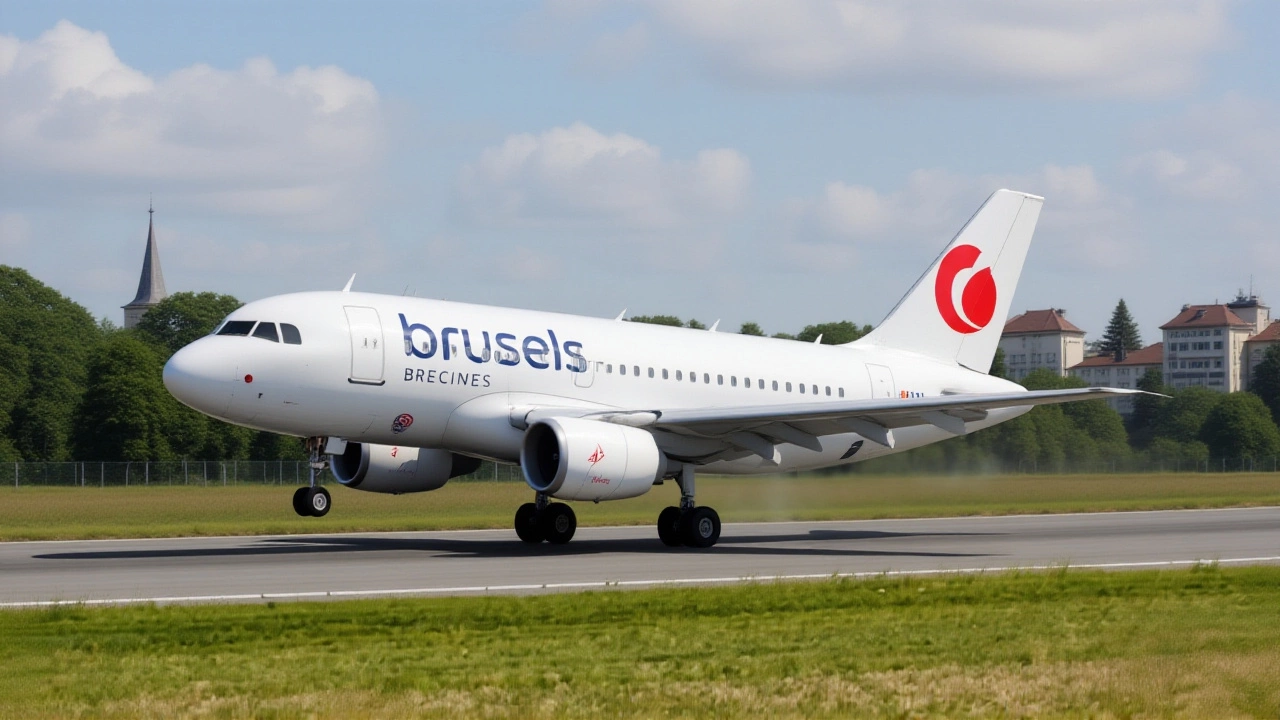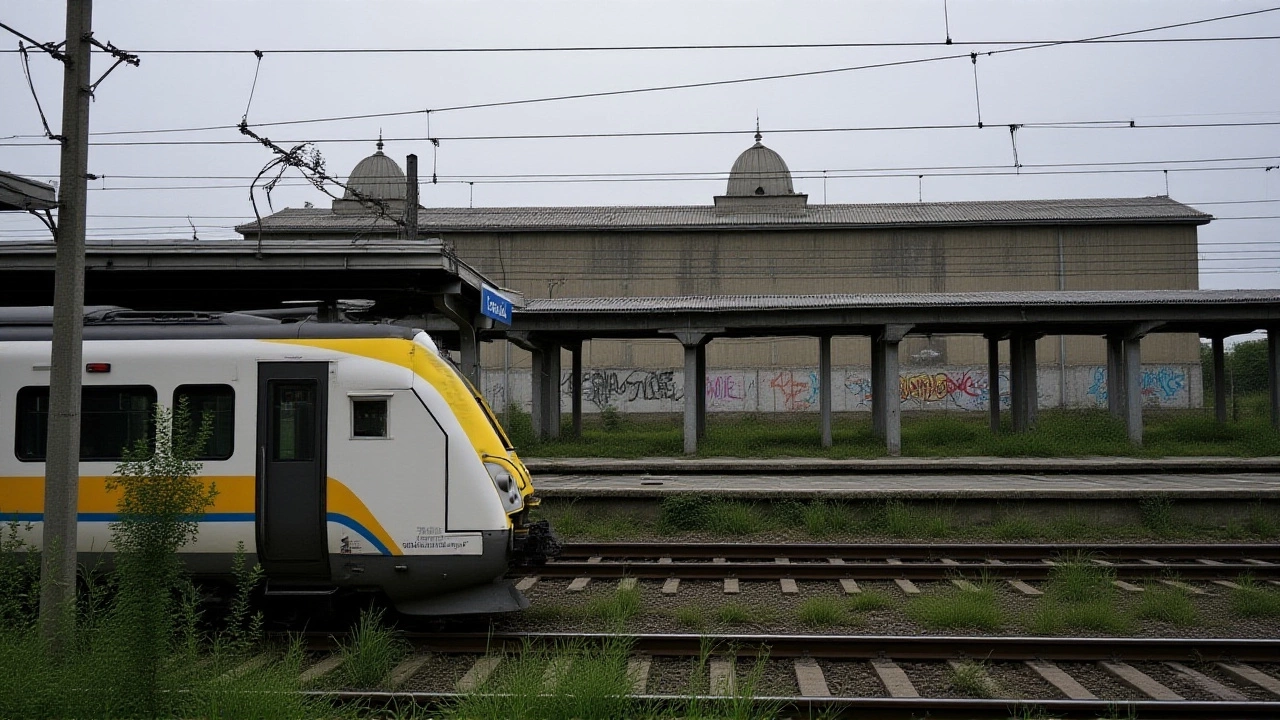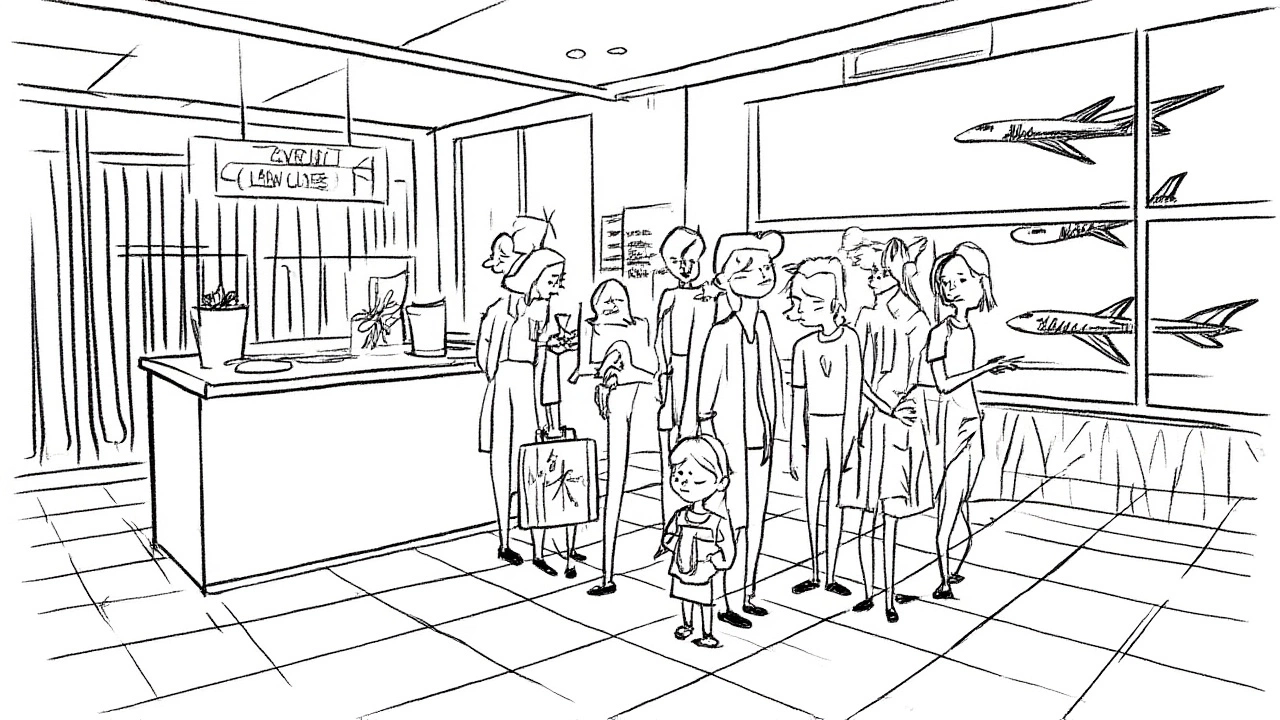Belgium Strike Grounds All Flights at Brussels Airports, Stranding Thousands of UK Travelers
 Nov, 26 2025
Nov, 26 2025
On Wednesday, November 26, 2025, Brussels Airport and Brussels South Charleroi Airport went completely silent — no departures, no arrivals. A nationwide three-day strike, led by Belgium’s three major trade unions — the General Labour Federation of Belgium (ABVV/FGTB), the Confederation of Christian Trade Unions (ACV/CSC), and the General Confederation of Liberal Trade Unions of Belgium (ACLVB/CGSLB) — shut down ground services, security, and air traffic control operations. For thousands of UK travelers relying on these hubs to connect to London Heathrow, Gatwick, and beyond, it was a travel nightmare that unfolded without warning.
Why Brussels Grounded Its Flights
The decision wasn’t made lightly. Brussels Airport issued a statement on November 24, 2025: "To ensure the safety of passengers and staff, we have decided, in consultation with airlines, not to operate any departing flights on 26 November." The reason? Ground staff, security personnel, and air traffic controllers — all union members — walked off the job. Even arriving flights were at risk, as planes couldn’t be safely serviced upon landing. At Brussels South Charleroi Airport, the situation was even more absolute: "Neither arrivals nor departures will operate" on the 26th, the statement read. The strike wasn’t just about flights — it was a signal. A protest against the Belgian government’s €10 billion austerity plan by 2030 and proposed hikes to the retirement age.Here’s the thing: this wasn’t a one-day walkout. It was a coordinated escalation. The strike began on Monday, November 24, and hit its peak on Wednesday — the busiest travel day of the week. By Tuesday, the National Railway Company of Belgium (NMBS/SNCB) had already slashed train schedules. By Wednesday, STIB/MIVB — Brussels’ entire public transit network — had shut down. Trams? Stopped. Buses? Cancelled. Trying to get to the airport became a logistical puzzle, even for those not flying.
UK Travelers Caught in the Crossfire
For UK passengers, Brussels has long been a critical gateway. British Airways operates dozens of daily flights between Brussels and London, making it one of the most popular routes for business travelers and holidaymakers alike. On November 26, those flights vanished. So did KLM, Swiss, and Dolomiti Airlines — all major carriers with heavy operations at both airports.Travelers woke up to emails, texts, and social media alerts: "Your flight has been canceled." No explanation beyond "industrial action." Many had booked connecting flights — a morning arrival in Brussels, then a midday flight to Manchester. Those connections? Gone. No rebookings. No standby options. Airlines were overwhelmed. British Airways said it was working "to assist affected customers," but with 3,000+ flights disrupted across Europe that day, resources were stretched thin.
And here’s the twist: UK law still protects travelers from EU-style compensation under the retained version of Regulation 261/2004. If your flight was canceled with less than 14 days’ notice, you’re entitled to a refund or rebooking — and possibly €250 to €600 in compensation, depending on distance. But here’s the catch: airlines can avoid payouts if the cancellation is due to "extraordinary circumstances." Strikes? Legally, they’re a gray zone. Some airlines argue they’re unavoidable; others pay anyway to avoid legal battles. Travelers were advised: "Keep all receipts. Save your booking references. Don’t accept vouchers without reading the fine print."

Europe’s Air Travel Domino Effect
Belgium wasn’t alone. On the same day, London Gatwick Airport saw 17 cancellations. Amsterdam Airport Schiphol reported 42 delays. Barcelona-El Prat Airport grounded 11 flights. According to Civil Aviation Authority data cited by Travel and Tour World, 393 flights across four major European hubs were disrupted on November 26.But AirHelp’s broader numbers told a starker story: over 3,100 delayed flights and 124 cancellations across London, Amsterdam, Nantes, and Rome — affecting airlines from KLM Royal Dutch Airlines to Euroatlantic Airways. The chaos wasn’t random. It was systemic. Strikes in Belgium, labor disputes in France, staffing shortages in Spain — all feeding into a perfect storm of European air travel collapse.
What Comes Next?
The strike ends on Thursday, November 27, but the fallout won’t. Brussels Airport warned travelers to expect "busy days" on the 27th as stranded passengers try to rebook. Airlines are scrambling to add extra flights, but fuel, crew, and gate availability are tight. The government, meanwhile, has stayed silent. No emergency talks. No concessions. Just a statement that "the strike is regrettable but a democratic right."Trade unions say they’re prepared to extend the action if the government doesn’t backtrack on the €10 billion cuts and retirement age increase — now set to rise from 66 to 67 by 2030. "This isn’t about pay raises," said a spokesperson for ACV/CSC. "It’s about dignity. About not being forced to work until you’re too old to stand."
For now, travelers are left waiting — at airports, on trains, in hotel lobbies. Some have booked flights via Paris or Frankfurt as backups. Others are giving up and staying home. One passenger from Leeds told a reporter: "I’ve been to Brussels 17 times. Never once did I think I’d be stranded because my own government’s budget cuts shut down my flight."

Historical Context: When Strikes Grounded Europe
This isn’t the first time Belgium’s airports have halted operations. In 2019, a 48-hour strike over pay and staffing canceled over 1,200 flights. In 2022, a similar walkout by ground staff caused 200+ cancellations. But this time, the scale is different. The union coalition is broader. The public support is higher. And the economic stakes — €10 billion in cuts — are unprecedented.Compare it to the 2023 UK rail strikes, which affected 1.5 million travelers. Belgium’s strike is more targeted, but the ripple effect is wider. With Brussels serving as a key EU administrative and transit hub, the disruption hits diplomats, business travelers, and tourists alike. Even the European Commission, headquartered just minutes from the airport, had to scramble to reschedule meetings.
Frequently Asked Questions
How does this affect UK travelers legally?
UK travelers canceled on flights departing from Belgium may still claim compensation under retained EU Regulation 261/2004, provided the airline didn’t notify them more than 14 days in advance. While airlines may claim "extraordinary circumstances," many still pay out to avoid lengthy disputes. Passengers should retain boarding passes, cancellation notices, and receipts for accommodation or meals — these are critical for claims. Compensation ranges from €250 to €600, depending on flight distance.
What led to this strike?
The strike is a direct response to the Belgian government’s plan to cut €10 billion from public spending by 2030 to meet EU debt targets, paired with a proposal to raise the retirement age from 66 to 67. Unions argue these measures disproportionately impact low-wage workers — including airport ground staff, cleaners, and security personnel — who already face high living costs and stagnant wages. The strike is part of a broader wave of resistance to austerity across Europe.
Why did public transport stop too?
The same unions representing airport staff also control public transit workers. The strike was coordinated across sectors to maximize pressure on the government. With STIB/MIVB and NMBS/SNCB both on strike, the message was clear: this isn’t just about airports — it’s about the entire public service system. Many residents supported the shutdown, seeing it as a stand against erosion of social services.
Will flights return to normal after November 27?
Flights will resume, but delays and cancellations are expected to linger for days. Airlines are short on crew and gates, and passengers are still trying to rebook. Brussels Airport estimates it will take at least 48 hours to clear the backlog. Travelers should check real-time updates via the airport’s app or website. The government has not signaled any willingness to negotiate, so future strikes remain a real possibility — possibly during the holiday season.
Are other European airports at risk?
Yes. France is preparing for its own transport strike in December, and Dutch rail workers have threatened action over pension reforms. Spain and Italy are also seeing rising union activity linked to austerity. With inflation still above 3% and public debt at 105% of GDP in the EU, similar strikes could become annual events. Brussels may be the flashpoint, but the underlying tensions are continent-wide.
What should travelers do if they’re affected?
First, contact your airline directly — don’t rely on third-party booking sites. Second, keep all documentation: emails, boarding passes, receipts for hotels or meals. Third, file a claim under UK consumer protection law if eligible. Fourth, consider travel insurance that covers strikes — many policies exclude them unless you bought coverage before the strike was announced. Finally, avoid rushing to the airport. Even when flights resume, queues will be long.